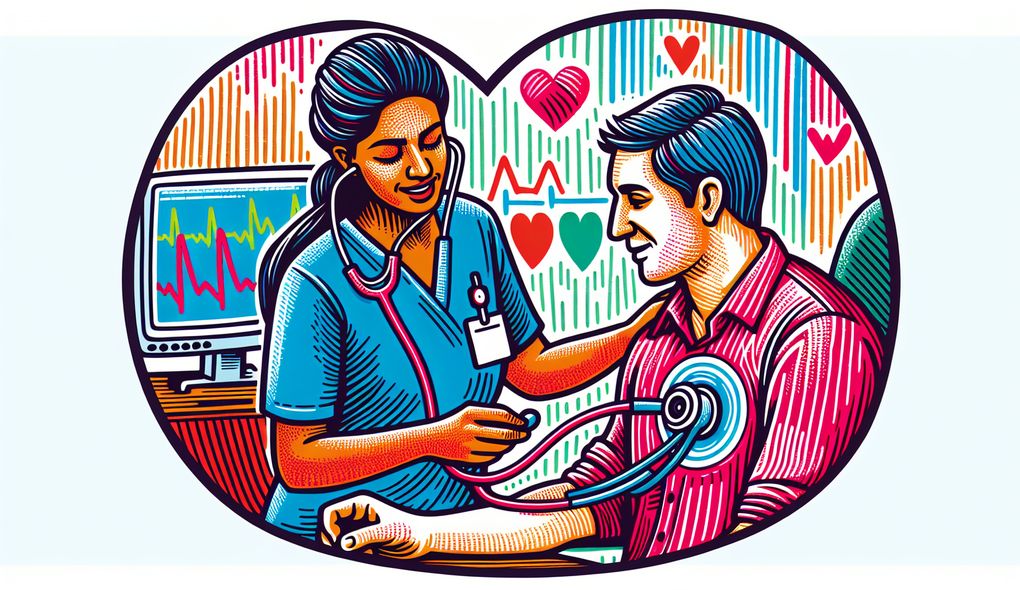Can you provide an example of a time when you had to quickly adapt to changes in a cardiology patient's condition and adjust the treatment plan accordingly?
INTERMEDIATE LEVEL

Sample answer to the question:
Yes, I can provide an example of a time when I had to quickly adapt to changes in a cardiology patient's condition and adjust the treatment plan accordingly. I was working in a cardiac care unit, and we had a patient who was admitted with a myocardial infarction. Initially, the patient was stable and responding well to medications. However, overnight, the patient's condition deteriorated rapidly, and they went into cardiogenic shock. We quickly assessed the situation and realized that the patient needed immediate intervention. I collaborated with the cardiologist and the healthcare team to initiate emergency treatment, including administering intravenous medications and arranging for transfer to the Intensive Care Unit. Throughout the process, I communicated with the patient and their family, providing them with updates and reassurance. This experience taught me the importance of being proactive and adaptable in cardiology patient care.
Here is a more solid answer:
Certainly! I have encountered several situations in which I had to adapt quickly to changes in a cardiology patient's condition and modify the treatment plan accordingly. One notable example was when I was working in a cardiac care unit and received an urgent call about a patient who had a sudden onset of heart failure symptoms. I immediately assessed the patient and noticed severe pulmonary edema and respiratory distress. Recognizing the need for urgent intervention, I mobilized the healthcare team, including collaborating with a cardiologist, respiratory therapist, and intensivist, to stabilize the patient's condition. Together, we initiated high-flow oxygen therapy, administered diuretics to reduce fluid overload, and adjusted the patient's medications to optimize cardiac output. Within a short period, the patient's symptoms began to improve, and we continued to closely monitor their cardiac status. This experience highlighted the importance of rapid response and effective collaboration in managing acute cardiac episodes.
Why is this a more solid answer?
The solid answer expands upon the basic answer by providing specific details about a situation in which the candidate had to adapt quickly to changes in a cardiology patient's condition and adjust the treatment plan. It addresses all the evaluation areas by mentioning the candidate's clinical judgment, ability to adapt to changes, collaboration with healthcare professionals, and communication skills. However, it can still be improved by adding more details about the candidate's communication with the patient and their family.
An example of a exceptional answer:
Absolutely! Let me share with you an exceptional example of a time when my quick adaptation to changes in a cardiology patient's condition had a significant impact on their treatment plan. I was working in a fast-paced cardiac care unit when an elderly patient with a history of atrial fibrillation was admitted with decompensated heart failure. Initially, the patient responded well to diuretic therapy and showed signs of improvement. However, during a routine follow-up assessment, I noticed an abrupt decrease in their blood pressure and an irregular pulse. Sensing the urgency, I immediately performed an EKG and identified a new-onset rapid ventricular tachycardia. Recognizing the need for immediate action, I promptly initiated cardioversion and successfully restored the patient's normal sinus rhythm. Simultaneously, I collaborated with the cardiologist to adjust the patient's medication regimen, including the addition of antiarrhythmic therapy. I also took the initiative to educate the patient and their family about the importance of medication adherence and monitoring for early signs of arrhythmia recurrence. This proactive approach ensured timely intervention and prevented potential complications. The patient's condition stabilized, and they were discharged with a modified treatment plan that focused on close outpatient monitoring. This experience solidified my belief in the crucial role of vigilant assessment, prompt decision-making, and patient education in optimizing cardiology patient outcomes.
Why is this an exceptional answer?
The exceptional answer provides a detailed and comprehensive example of a time when the candidate had to quickly adapt to changes in a cardiology patient's condition and adjust the treatment plan accordingly. It addresses all the evaluation areas by showcasing the candidate's clinical judgment, ability to adapt to changes, collaboration with healthcare professionals, and communication skills. The answer also includes additional details about the candidate's proactive approach, patient education, and the impact of their actions. Overall, the exceptional answer demonstrates a high level of expertise and highlights the candidate's commitment to patient-centered care.
How to prepare for this question:
- Review and familiarize yourself with common cardiac conditions, their symptoms, and appropriate treatment approaches.
- Stay updated on the latest advancements in cardiology and cardiology nursing through medical journals and professional development opportunities.
- Take part in simulation exercises or case studies that require quick decision-making and adaptation to changes in a patient's condition.
- Develop your communication skills by practicing active listening and effective patient/family education.
- Seek opportunities to collaborate with other healthcare professionals, such as attending interdisciplinary meetings or participating in collaborative projects.
What are interviewers evaluating with this question?
- Clinical judgment
- Ability to adapt to changes
- Collaboration with healthcare professionals
- Communication skills

